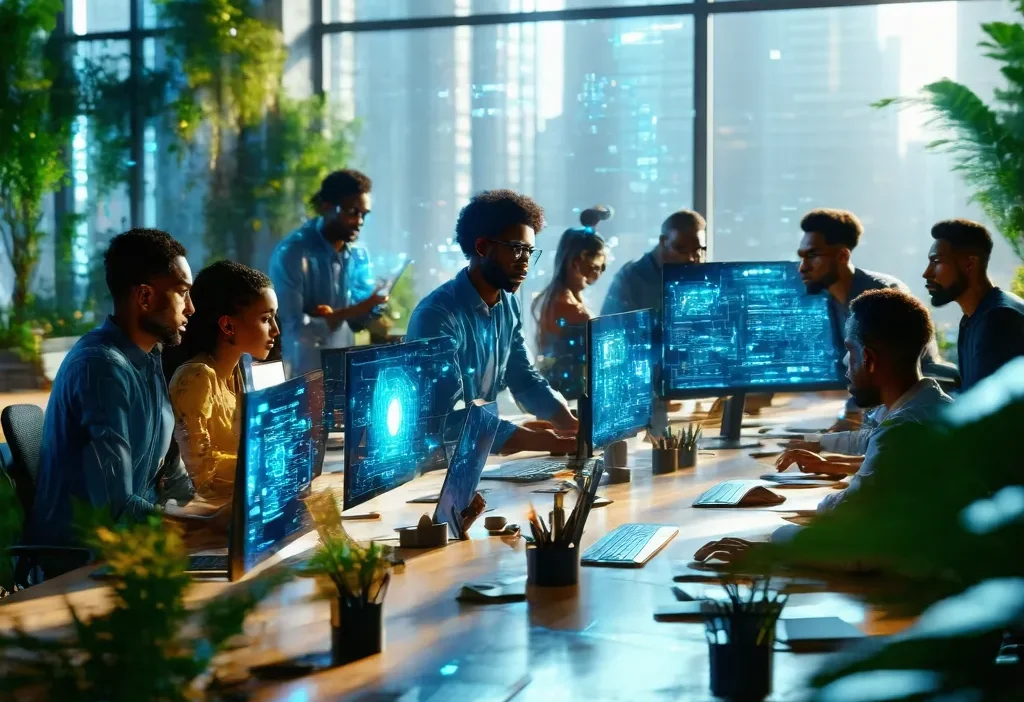5 Emerging Trends That Will Revolutionize The Future Of Work
As we stand on the brink of a new era, the future of work is undergoing a seismic shift. Traditional office environments are giving way to more flexible and dynamic setups, driven by technological advancements and evolving workplace needs. In this blog post, we’ll delve into five emerging trends that promise to redefine how we approach our professional lives.
1. The Rise Of Remote Work
The COVID-19 pandemic accelerated the adoption of remote work, and it’s here to stay. According to a Forbes report, 87% of employees want to continue working remotely at least part-time after the pandemic. This shift isn’t just about convenience—it’s about redefining productivity and work-life balance. Companies are realizing that remote work can reduce overhead costs while increasing employee satisfaction.
- Flexible scheduling allows for better personal time management
- Access to a global talent pool expands hiring opportunities
- Reduced commuting times lead to happier, less stressed employees
However, managing remote teams requires new strategies. Tools like Zoom and Slack have become essential for communication, while platforms like Asana and Trello help maintain productivity. The future of work is undeniably more connected but also more decentralized.
2. Automation And AI Integration
Automation and artificial intelligence (AI) are no longer buzzwords—they’re becoming integral parts of the modern workplace. By 2030, McKinsey & Company estimates that up to 375 million workers worldwide may need to switch occupations due to automation. While this sounds daunting, it also presents an opportunity for growth and innovation.
AI is streamlining repetitive tasks, freeing employees to focus on more creative and strategic responsibilities. For instance, chatbots are handling customer service inquiries, while AI-powered tools assist with data analysis and decision-making. This shift isn’t about replacing human workers but enhancing their capabilities.
3. Emphasis On Mental Health And Well-being
The pandemic has shed light on the importance of mental health in the workplace. Employees are increasingly prioritizing roles that offer support for their well-being, and companies are responding by implementing wellness programs. A Harvard Business Review study found that organizations investing in employee well-being see a 2-to-1 return on investment through reduced absenteeism and higher productivity.
Mental health support is becoming a key differentiator for employers. This includes everything from flexible working hours to access to counseling services. The future of work is not just about efficiency—it’s about fostering a culture where employees feel valued and supported.
4. Skill Evolution And Continuous Learning
In an era of rapid technological change, the skills that were once considered essential are quickly becoming obsolete. The concept of lifelong learning is gaining traction as workers seek to stay relevant in a competitive job market. According to Ted Talks, by 2030, over half of all employees will require significant upskilling or reskilling.
Upskilling and reskilling are no longer optional. Platforms like Coursera and LinkedIn Learning offer accessible courses on everything from coding to digital marketing. Employers are also investing in training programs to ensure their workforce remains competitive.
5. Sustainability And Ethical Work Practices
The push for sustainability is infiltrating every aspect of our lives, including the workplace. Employees are increasingly drawn to companies that prioritize ethical practices and environmental responsibility. A GreenBiz report reveals that 73% of millennials consider a company’s social and environmental impact when deciding where to work.
Sustainability is becoming a core business strategy. This includes everything from reducing carbon footprints to promoting diversity and inclusion. The future of work is not just about profitability—it’s about making a positive impact on the world.
Conclusion
The future of work is undeniably exciting, but it also comes with its challenges. As we navigate this new landscape, it’s essential to stay adaptable and open to change. By embracing these emerging trends, we can create workplaces that are not only productive but also fulfilling and sustainable.
Whether you’re an employer or an employee, now is the time to think about how these trends will impact your professional journey. The future of work is bright—but it’s up to us to shape it in a way that benefits everyone.





